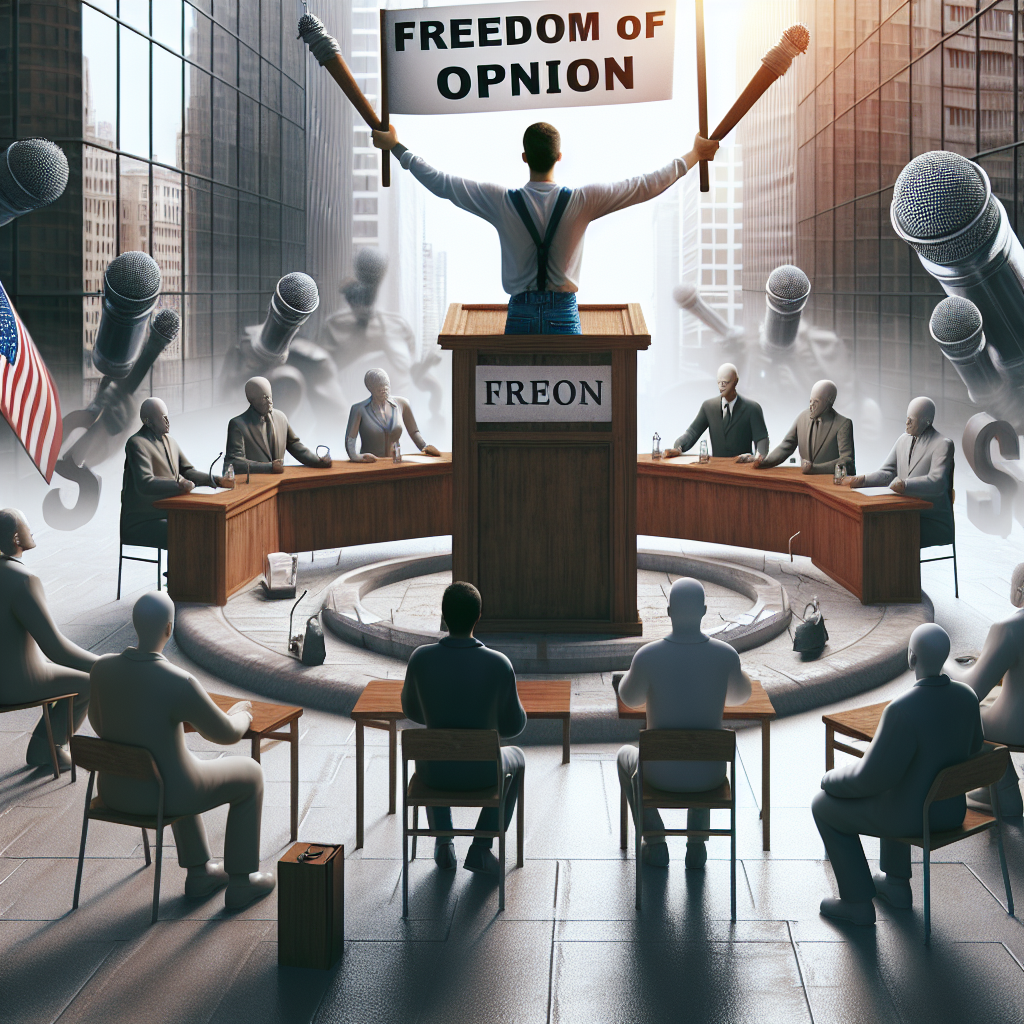Menggali batasan kebebasan berpendapat dalam masyarakat modern untuk mempertanyakan dan memperluas pemahaman kita.
Kebebasan Berpendapat: Mempertanyakan Batasan dalam Masyarakat Modern
-
Table of Contents
- Introduction
- The Importance of Freedom of Speech
- Historical Context
- Constitutional Protection
- The Boundaries of Freedom of Speech
- Defamation Laws
- Blasphemy Laws
- Hate Speech and Incitement
- Questioning the Limitations
- Protecting Vulnerable Communities
- Promoting Civil Discourse
- Challenging the Status Quo
- Conclusion
Introduction

In a modern society, freedom of speech is often considered a fundamental right that allows individuals to express their opinions and ideas without fear of censorship or punishment. In Indonesia, this right is enshrined in the country’s constitution and is seen as a cornerstone of democracy. However, the concept of freedom of speech is not without its limitations and challenges. This article will explore the boundaries of freedom of speech in modern Indonesian society and the importance of questioning these limitations.
The Importance of Freedom of Speech
Freedom of speech plays a crucial role in any democratic society. It allows individuals to voice their opinions, engage in public discourse, and hold those in power accountable. It is through the free exchange of ideas that progress is made, and societies can evolve. In Indonesia, freedom of speech is particularly significant as the country has a diverse population with varying perspectives and beliefs. Allowing individuals to express themselves freely fosters a sense of inclusivity and encourages a vibrant and dynamic society.
Historical Context
Indonesia’s struggle for independence from colonial rule has shaped the country’s commitment to freedom of speech. During the Dutch colonial era, Indonesians were subjected to strict censorship and limited access to information. The fight for independence was not only a political struggle but also a battle for the right to express oneself freely. This historical context has influenced the importance placed on freedom of speech in modern Indonesia.
Constitutional Protection
The Indonesian Constitution guarantees freedom of speech under Article 28E(3), which states that “every person shall have the right to freedom of thought and expression.” This constitutional protection is a testament to the country’s commitment to upholding this fundamental right. However, it is essential to recognize that freedom of speech is not absolute and is subject to certain limitations.
The Boundaries of Freedom of Speech
While freedom of speech is a fundamental right, it is not without limitations. These limitations are necessary to ensure that speech does not incite violence, spread hate speech, or infringe upon the rights of others. In Indonesia, there are several laws and regulations that define the boundaries of freedom of speech.
Defamation Laws
Defamation laws in Indonesia aim to protect individuals from false statements that harm their reputation. While these laws are intended to prevent the spread of false information, they can also be used to stifle criticism and dissent. Critics argue that defamation laws are often used by those in power to silence their critics and suppress freedom of speech.
Blasphemy Laws
Indonesia has strict blasphemy laws that prohibit speech or actions that insult or defame religion. While these laws are intended to promote religious harmony, they have been criticized for being used to target religious minorities and restrict freedom of speech. The vague and ambiguous nature of these laws makes it challenging to determine what constitutes blasphemy, leading to potential abuses.
Hate Speech and Incitement
Freedom of speech does not protect hate speech or speech that incites violence. In Indonesia, hate speech laws are in place to prevent the spread of discriminatory or inflammatory speech. While these laws are necessary to maintain social harmony, there is a fine line between protecting individuals and limiting freedom of speech. The challenge lies in striking a balance between preventing hate speech and allowing for open and honest discussions.
Questioning the Limitations
While limitations on freedom of speech are necessary, it is crucial to question and critically examine these boundaries. In a modern society, where information flows freely and opinions are easily shared, it becomes even more important to evaluate the limitations placed on freedom of speech.
Protecting Vulnerable Communities
One argument for limiting freedom of speech is to protect vulnerable communities from hate speech and discrimination. However, it is essential to ensure that these limitations do not become a tool for suppressing dissent or silencing marginalized voices. Striking a balance between protecting vulnerable communities and allowing for open dialogue is crucial for a healthy and inclusive society.
Promoting Civil Discourse
Another aspect to consider is the role of freedom of speech in promoting civil discourse. Allowing individuals to express their opinions freely encourages open dialogue and the exchange of ideas. By questioning the limitations on freedom of speech, society can foster an environment where diverse perspectives are valued and respected.
Challenging the Status Quo
Questioning the limitations of freedom of speech also allows for the challenging of the status quo. It enables individuals to voice dissenting opinions and challenge existing power structures. By encouraging critical thinking and questioning, society can progress and evolve.
Conclusion
Freedom of speech is a fundamental right that plays a crucial role in a modern society. In Indonesia, this right is protected by the constitution, but it is not without limitations. Defamation laws, blasphemy laws, and hate speech regulations define the boundaries of freedom of speech. However, it is important to question and critically examine these limitations to ensure that they do not infringe upon the principles of democracy and inclusivity. By protecting vulnerable communities, promoting civil discourse, and challenging the status quo, society can strike a balance between freedom of speech and responsible expression. Only through questioning the limitations can we truly embrace the essence of freedom of speech in a modern Indonesian society.







